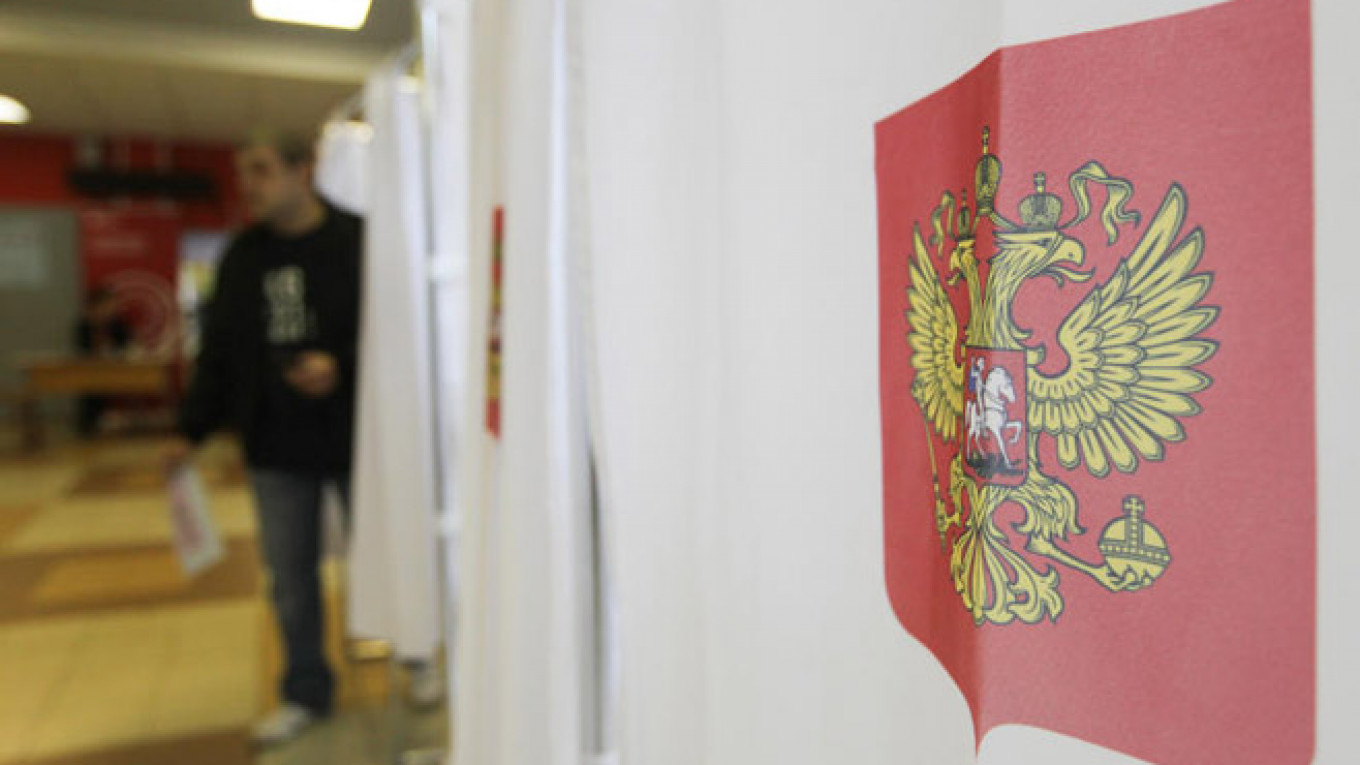As the State Duma mulls alternative methods of selecting Russia's mayors, a new poll reveals that a substantial majority prefer the option of direct elections.
Of the respondents polled in April by independent research organization the Levada Center, 77 percent voiced support for the continuation of direct mayoral elections in Russia's cities. The option of mayoral appointments by regional governors took a distant second, with 9 percent of respondents voicing support for the method.
Only 8 percent of respondents favored the option of mayoral appointments by city legislatures, the method initially proposed in a bill that passed in its first reading by the Duma last month. Notably, Moscow and St. Petersburg were excluded from the bill.
While the bill enjoyed support from United Russia and LDPR deputies, it faced criticism as well. A Just Russia deputy Mikhail Yemelyanov complained that the bill "furthers the bureaucratization of local government," Gazeta.ru reported.
Based on objections voiced during the first reading, the Duma Committee on Local Administration has approved certain changes to the bill since the Levada Center poll was conducted.
"The main innovation is the addition of a stipulation that would allow the governments of each Russian federal subject to determine for themselves how to select local government officials," United Russia's deputy Duma faction head Vyachelsav Timchenko said on his party's website.
In the present version, regional authorities would be offered four options. One option simply provides for direct mayoral elections. The second provides for direct mayoral elections, but stipulates a power-sharing agreement between the mayor and an official appointed by a commission comprised of the regional mayor and a group of local legislators. A third option provides for the appointment of a mayor by a directly-elected municipal legislature. The fourth provides for the appointment of a mayor by a municipal legislature, the members of which had been appointed by a directly elected regional legislature.
The bill is scheduled for a second reading in the Duma on Tuesday.
The Levada Center poll was conducted between April 25 and 28. The results were calculated based on the views of 1,602 respondents in 45 regions across Russia. It carried a 3.4 percent margin of error.
Contact the author at c.brennan@imedia.ru
A Message from The Moscow Times:
Dear readers,
We are facing unprecedented challenges. Russia's Prosecutor General's Office has designated The Moscow Times as an "undesirable" organization, criminalizing our work and putting our staff at risk of prosecution. This follows our earlier unjust labeling as a "foreign agent."
These actions are direct attempts to silence independent journalism in Russia. The authorities claim our work "discredits the decisions of the Russian leadership." We see things differently: we strive to provide accurate, unbiased reporting on Russia.
We, the journalists of The Moscow Times, refuse to be silenced. But to continue our work, we need your help.
Your support, no matter how small, makes a world of difference. If you can, please support us monthly starting from just $2. It's quick to set up, and every contribution makes a significant impact.
By supporting The Moscow Times, you're defending open, independent journalism in the face of repression. Thank you for standing with us.
Remind me later.






